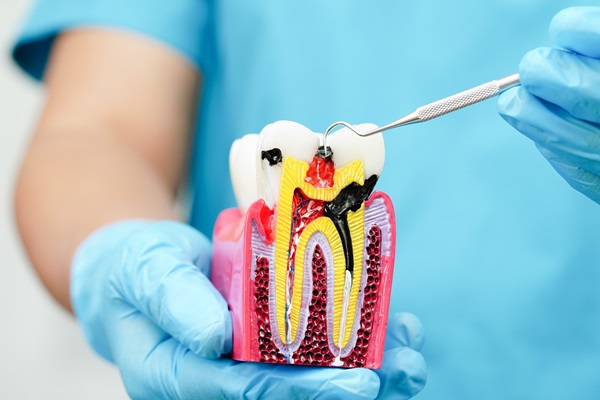Can Multiple Teeth Need a Root Canal?

Dentists recommend root canal treatment for damaged, diseased, or infected teeth. The treatment aims to eliminate bacteria within the tooth's pulp and save a patient's natural teeth. After a tooth matures, it no longer requires the pulp for nourishment. The dentist removes the infected pulp, disinfects the inside, and seals it to prevent reinfection.
Can dentists treat multiple teeth in need of root canals?
Decay and damage do not always occur in only one tooth. In the case of cavities, some patients have a predisposition for tooth decay. Likewise, patients might suffer cracks to multiple teeth due to accidents or grinding. Cracks can extend to the root and consequently damage the pulp. If an individual has various infected or damaged teeth, a dentist may recommend multiple root canals.
When does a tooth require a root canal?
Before undergoing a root canal, patients can benefit from understanding the anatomy of their teeth. The pulp is a soft tissue beneath the enamel and dentin, extending from root to crown. It houses connective tissue, blood vessels, and nerves.
Deep decay and cracks damage the pulp. When left untreated, the pulp becomes inflamed and infected. Signs of an infection include:
- Severe pain while chewing
- Swollen gums
- Sensitivity to hot and cold lingering after contact
- Dark gums
- Bumps or pimples appearing on the gums
An infection in the tooth can spread to surrounding tissues and jawbone. Root canals are ideal for patients who want to save their teeth and preserve their bite.
How long does the root canal process last?
While multiple teeth may require root canal therapy, most dentists do not perform numerous root canals in one sitting. The procedure involves creating a tiny opening within the tooth to access the chamber. Next, the dentist carves out the tooth's nerve, removes the infection, and thoroughly disinfects the tooth.
Most appointments last between 30 minutes to one hour, but complex procedures last as long as 90 minutes. The length of time depends on the position of the tooth and the extent of the damage. For example, canines and incisors take less time because they have a single root to clean and fill. On the other hand, molars might have four canals to treat.
Dentists often fill and seal the tooth with a temporary filling material following the procedure. Most set up a second appointment to fit a permanent crown.
Most patients return to regular activities shortly after the procedure. Many patients can resume work on the same day or the next. Full recovery usually takes a few days, but rare cases require one to two weeks. If several teeth have infections, the dentist may treat the infections with antibiotics and schedule several procedures over time.
Conclusion
Root canals preserve a patient's natural teeth. In some cases, individuals present with multiple damaged or decayed teeth. While dentists do not perform numerous root canals in one appointment, they do perform this treatment on multiple teeth over a period of time.
Request an appointment here: https://bergenerdental.com or call Hackensack Emergency Dental and Implant Center at (201) 620-9644 for an appointment in our Hackensack office.
Check out what others are saying about our dental services on Yelp: Root Canal Treatment in Hackensack, NJ.
Related Posts
An emergency dentist is vital when unexpected dental problems arise, providing immediate care to address pain, damage, and other urgent issues. Comparing an emergency dentist to an oral surgeon is important for understanding which professional can best meet a patient's needs. While both play critical roles in maintaining oral health, their training, focus, and treatment…
For dental emergencies, people can go to an emergency dentist or an emergency room. However, several things should be considered before deciding where to seek medical help. Just like any other medical emergency, dental emergencies also require different levels of care. This depends on their severity. The ideal place to go for treatment when you…
In most serious situations, an emergency dentist is the right person to turn to for your oral health. Ignoring a dental emergency can have drastic effects on your overall wellness. Thankfully, a dentist practicing emergency care will have the knowledge and training to restore your smile and the function of your mouth. In cases where…
A restorative dentist provides various treatments that help to address issues that develop in your mouth. Restorative dentistry focuses primarily on performing treatments that restore the function of damaged teeth.Wondering how a restorative dentist can help to improve your oral health? Let us take a look at some of the most popular treatments performed by…
